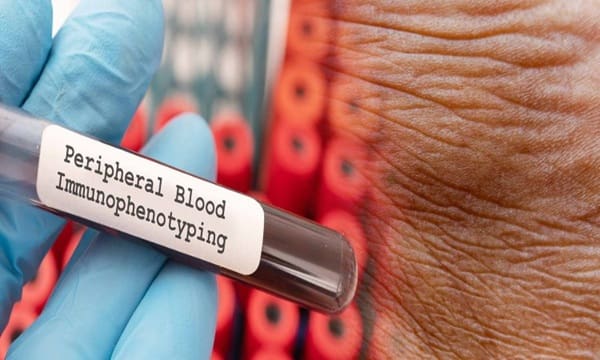Immunophenotyping is a complex laboratory test that is essential for the diagnosis, classification, and treatment of immune system disorders and blood-related cancers. It is an extremely advanced method that uses the power of precision technology to study cell composition of the immune system and abnormalities, as opposed to standard blood tests.
Core Technology
The methods used in immunophenotyping to identify a particular type of cell include the analysis of the markers or antigens on the surface, interiors, or nuclei.
It is typically done by flow cytometry, which can analyze thousands of cells per second and give accurate results. Sometimes immunophenotyping can also be performed through immunohistochemistry or tissue-based assessment.

How It Works
Fluorescent-tagged antibodies binding to specific cell markers are applied to blood, bone marrow, or tissues.
The tagged antibody-bound cells are evaluated with the help of a flow cytometer. The flow cytometer will characterize the arrangement of the distinct cells (i.e., immunophenotypes), which can be associated with either normal or abnormal immune cell populations.
This provides healthcare providers with the ability to accurately separate healthy and disease-responsive cells.
Key Medical Uses
The immunophenotyping test is also important in the diagnosis and subclassification of blood cancers, including leukaemia and lymphoma.
It can also be used to diagnose inherited and acquired immune deficiencies, autoimmune diseases, and certain infections.
Doctors can order this test when they don’t find any reason to explain abnormal blood counts, chronic infections, or immune system malfunction.
Benefits for Patient Care
Early and specific diagnosis can be achieved through proper identification of the cells, which is crucial for effective treatment.
It also tracks the progress of diseases, assesses reaction to therapies, and assists in modifying the treatment plan.
Drug response markers are detected using immunophenotyping assays, particularly for immunotherapy research and cancer treatment.
What the Results Indicate
The results indicate the ratios and properties of immune cells (B cells, T cells, and myeloid cells), and the presence of atypical or cancer cells.
Doctors can use this information to confirm a diagnosis, request additional testing, and develop a personalized treatment plan.
Wider Implications
Immunophenotyping is useful not only for identifying immune disorders but also for characterizing other complex diseases.
The test results can be used for the prognosis of the disease and long-term health monitoring.
Why you should choose a reliable provider
Ensure that you pick a reputable laboratory based on the services that it offers for accurate results. Laboratories like MedGenome provide a variety of tests, as well as assistance and consultation for interpreting the results.
These advances in genetic testing, plus the diagnostic impact of immunophenotyping, have completely changed the course of healthcare. Combining laboratory science with clinically relevant information can provide a level of confidence to both doctors and patients when dealing with complex diseases.

